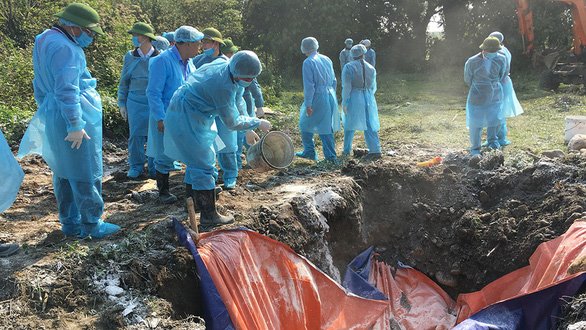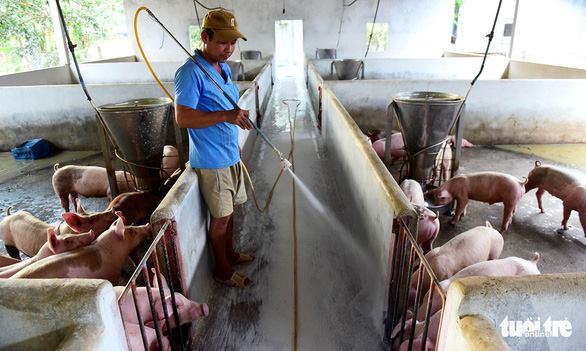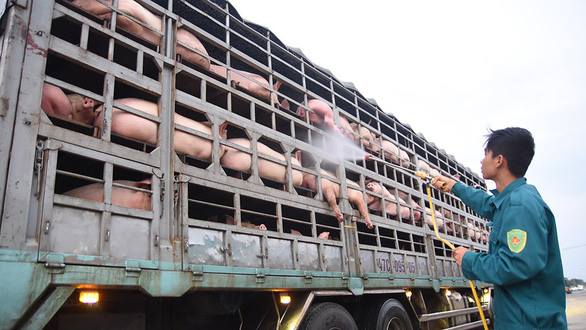The African swine fever (ASF) epidemic has spread to 17 localities in Vietnam and is bringing about serious damage to the country’s pork market that is worth up to US$10 billion a year.
As of Thursday, more than 23,440 pigs have been disposed of in 221 communes and 52 districts of 17 provinces and cities across the Southeast Asian nation.
During an urgent meeting on the afternoon of the same day, Vietnam’s Minister of Agriculture and Rural Development Nguyen Xuan Cuong stated that the disease is threatening multiple key areas in the country, including the Red Mekong Delta, northern mountainous provinces, and southern region.
“If the epidemic spreads to all of these areas, the consequences will be extremely serious,” Cuong said.
“It will take a long time for the pork industry to recover.”
 |
| Pigs infected with African swine fever are disposed of in the northern province of Quang Ninh. Photo: Thanh Truong / Tuoi Tre |
According to the Animal Husbandry Association of Vietnam (AHAV), about three million pigs, equivalent to 300,000 metric tons, are consumed across Vietnam every month.
Since the first ASF outbreaks were recorded one and a half months ago, pork prices have decreased across the country, especially in northern Vietnam, where most of the affected localities are located.
Financial damage has reached up to VND5 trillion ($215 million) during this period, not to mention the expensive costs needed for disease prevention and disposal of injected pigs.
Local market research companies estimated that the pork market in Vietnam is worth approximately $10 billion a year.
The epidemic has also had negative impact on Vietnam’s pork exports, as many countries have banned the products since Vietnam announced the situation, said Gabor Fluit, business group director Asia of De Hues LLC.
The Chinese General Administration of Customs said on Tuesday China has banned imports of pigs, wild boars and related products from Vietnam in the wake of the Southeast Asian country’s series of ASF outbreaks.
Some other expert companies believed that Vietnam’s pork export will continue facing challenges in the coming time, as experience of other countries showed that it takes tens of years to completely eradicate the disease.
The damage is expected to continue rising given the complicated development of ASF, said Nguyen Tri Cong, president of the Dong Nai Husbandry Association, located in the namesake southern province.
Dong Nai currently has 2.5 million pigs, the largest number in the country.
 |
| A farmer in Dong Nai Province sterilizes his pigs. Photo: Quang Dinh / Tuoi Tre |
Competent authorities have been taking all possible measures to protect pigs in the province, said Huynh Thanh Vinh, director of the provincial Department of Agriculture and Rural Development.
The Department of Animal Health under the agricultural ministry warned that the epidemic has been spreading to many northern localities and is likely to head south despite all efforts.
The WHO advised that the best way to alleviate the situation is to ensure biosecurity in husbandry.
Like us on Facebook or follow us on Twitter to get the latest news about Vietnam!

















































